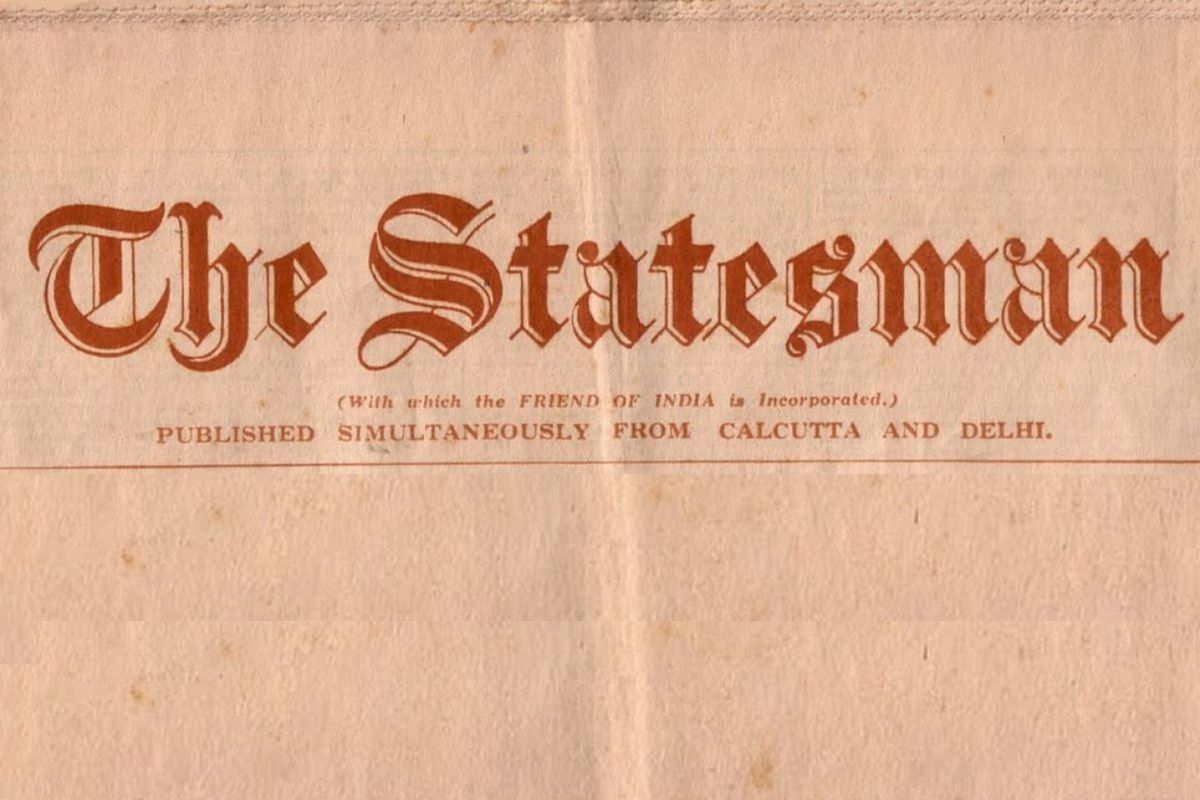Leading women personalities on what it takes to be a woman!
On International Women's Day, The Statesman talked to esteemed women personalities from various fields on what it takes to be a woman in our country and what empowers them.
On this day a century ago, these were some of the news items The Statesman readers got to read about India and the world.

OCCASIONAL NOTE
One of the prettiest birds to be seen in this country is the Indian roller, or blue jay. In the new number of the Agricultural Journal of India (vol. XV, part 1), published by Messrs. Thacker, Spink & Co., there is an article by Mr. Bainbrigge Fletcher, the Imperial Entomologist, in which this bird is put on its trial, so to speak, from the agriculturist’s point of view. It is satisfactory to find that the verdict is favourable. Besides being an ornament to any landscape, as Mr. Fletcher says, the Indian roller is extremely useful, as its food consists almost entirely of large insects such as grasshoppers, crickets, and beetles, varied by an occasional small mouse, frog, or snake. It is even said to have eaten a toad. The number of injurious insects which it destroys far more than counterbalances the fact that a very few insects of a beneficial kind have been found among its food. There is every reason, therefore, why the roller, which is said to be frequently shot for the sake of its wings, should be carefully preserved, and Mr. Fletcher notes that it is protected, under the Wild Birds and Animals Protection Act, throughout the whole year in Bihar and Orissa and in Delhi. Calcutta seems to be about the eastern limit of the Indian roller, beyond which it is replaced by the Burmese roller, while there are other species to be found elsewhere.
Advertisement
BOMBAY MILL STRIKE
Advertisement
Last night at a mass meeting of the millhands, Mr. Joseph Baptista, who presided, exhorted the millhands to accept the terms offered by the millowners and to resume work at once. While advising them to resume work or continue to strike in a compact body, Mr. Baptista pointed out that His Excellency the Governor at their request had espoused their cause and used his influence to obtain for the operatives the best terms he could get from the millowners. They, therefore, owed a duty to the Governor in accepting the terms offered to resume work. The majority of those present seemed disinclined to accept the advice. The management of Messrs. Alcock Ashdown and Co., have offered their men an increase of four annas in their daily wages. The men are expected to resume work today.
JAPAN AND CHINA
The Japanese Minister has notified the Chinese Government that consequent upon the enforcement of the Peace Treaty, Japan, in accordance therewith, has succeeded to the former German rights in Kiaochao. The Minister also stated that Japan was prepared to negotiate with China regarding the retrocession of leased territory, if China were willing, emphasising the fact that when arrangements were completed Japan would immediately withdraw the railway guards from Shantung. It would be therefore to China’s interest to negotiate with Japan as soon as possible. China has not yet replied.
BOMBAY-KARACHI AIR MAIL
KARACHI, JAN 30
Today at 2 P.M. the second air mail left Karachi for Bombay and is likely to make the second trip if the wind holds. The airplane, a new D.H. 10, flown by Pilot Officer Ashmore and two air mechanics, carried only 13 lbs. of postal matter compared to 48 lbs. last week. The cost of this flight is close on Rs 5,000. The postal fees paid this week were a little over a hundred rupees, so that the experiment is proving costly. It is suggested that by a slight postponement of the mail boat departure the Karachi air mail might leave on Saturdays instead of Fridays. If commercial machines and not war planes were used them passengers could be taken and big consignments of mails also. Passenger flights are likely to be popular and thus the expense would be recouped.
EMPIRE STATISTICAL CONFERENCE
The Empire Statistical Conference continues to sit. It has hitherto agreed to the principle of an Empire Statistical Bureau. The question of classification of commodities was referred to a committee, as the various representatives showed the necessity for several different classifications. Mr. Shirras (India) was of opinion that, in view of the intimate trade relations between India and Britain, it would be better for India to adopt the practice of the United Kingdom. Mr. Cousins (South Africa) raised the question of the need for uniformity in units of quantity and value. It was finally agreed that local units of weight measure and value should continue in local returns, and the work of translation into Imperial units in returns dealing with the whole Empire should be done by the Imperial Statistical Bureau.
Advertisement